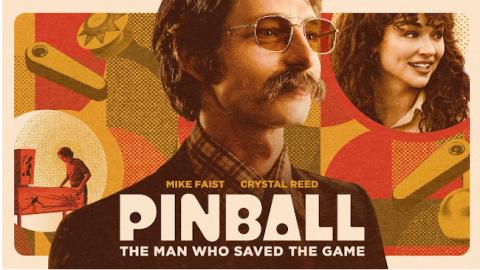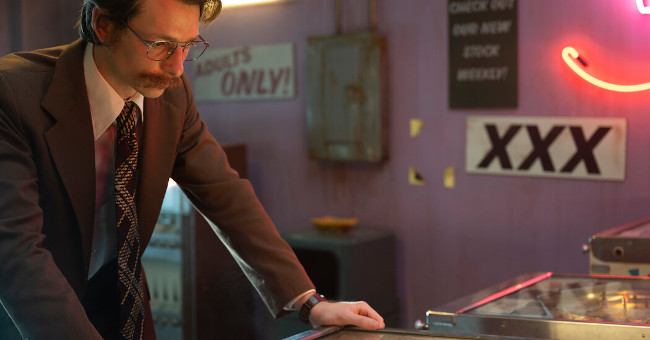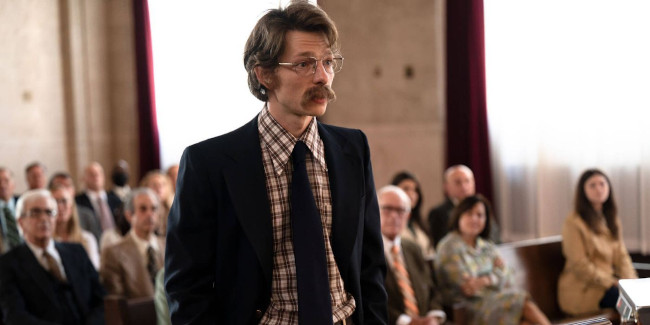‘Pinball’ Tells the Story of the Man Who Legalized the Game

In an age where biopics are becoming more common, we’ve seen that even incredible stories can become mediocre if they aren’t told right. However, with the right cast, director, and script, any story can be compelling and memorable. “Pinball: The Man Who Saved the Game” is a charming portrayal of how Roger Sharpe overturned a ban on pinball machines in 1970s New York.
Between the 1930s and 1970s, many major cities across the U.S. had bans on pinball machines because of the perception that they were used by the mob for gambling and ripping off children. Roger Sharpe was a college student when he fell in love with the game and while he struggled to find writing work after college, his passion for pinball was reignited. He started playing the game in an adult bookstore without even knowing they were banned, and the confidence it gave him helped him land a new job writing for GQ.

Mike Faist plays Sharpe for most scenes, but is also portrayed by Dennis Boutsikaris, who plays a current version of Sharpe and acts as a narrator. Faist does a great job of making Sharpe a charming underdog whom you want to root for. There’s a good amount of comedy as well that works thanks to Faist’s timing and a clever script. The stakes of the story are low, so the whole thing has a lighthearted feel that still draws you in thanks to the writing and direction.
Since the story of how Sharpe saved pinball wouldn’t be long enough on its own, there’s also a romantic plot in this movie, where Sharpe begins dating a single mother named Ellen played by Crystal Reed. Normally this sort of thing is an easy way to ruin a movie and muddle would have been a better and more focused story, but it actually works here because of the chemistry between the characters.

The amount of pinball history and insight into the game is also interesting. The entire thing is a reminder of how simple, innocent things can become scapegoats as a way for people to blame and avoid the actual issues. It seems ridiculous that pinball had a stigma for being tied to the mob and illegal gambling, but it’s not as absurd than music and videogames being blamed for things they’re clearly not responsible for.
This film is upfront about not telling a completely honest story and it adds to the charm of the presentation. It gets enough of the details right to tell a story that feels authentic and captivating. Everything from the acting, writing, editing and pacing works well, so it’s easy to recommend this movie as one of the highlight films of the year.

Author Bio:
Ulises Duenas is a senior writer at Highbrow Magazine.
For Highbrow Magazine






























































































































































































































































































































